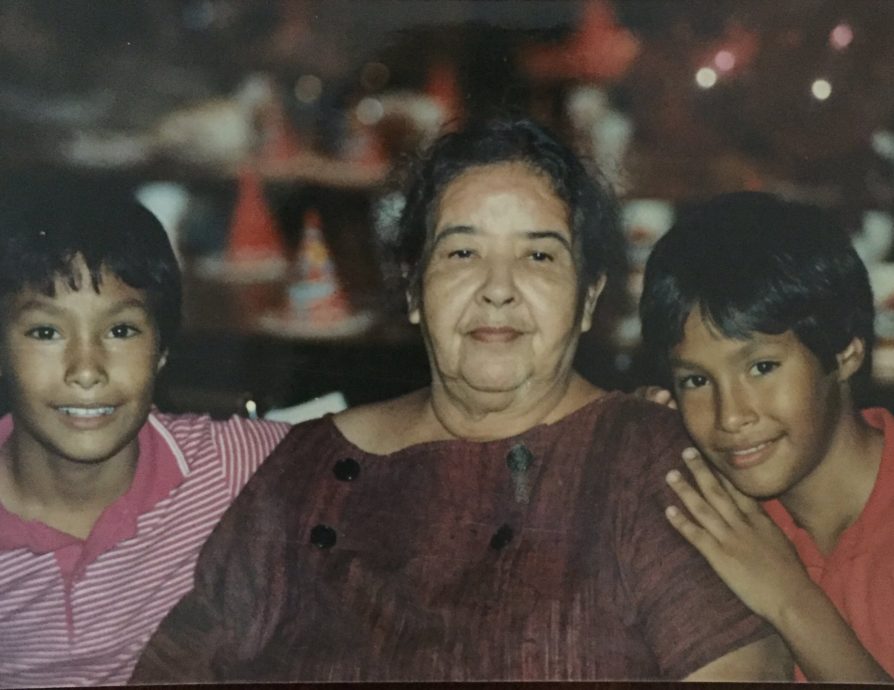Julián Castro is the grandson of a Mexican immigrant, Victoria, who came to the United States with nothing at seven years old and did not make it past the fourth grade. Two generations later, the values of hard work and perseverance passed down to him from this grandmother and single mother led him to become the mayor of San Antonio, the Housing and Urban Development (HUD) Secretary under president Barack Obama, and most recently, a candidate for the presidency of the United States. As his candidacy website put it, Castro embodies the idea of “immigrant roots, American dreams.”
Castro was born in San Antonio, Texas. He grew up with his mother Rosie, a strong Chicana activist and educator, his twin brother Joaquin (who would go on to become a U.S. Representative), and his grandmother Victoria, who worked as a maid cleaning houses.

It was his activist mother who instilled in him and his brother the power of action, he explained. “During her campaign as the first Chicana to run for San Antonio city council, she taught us that if you want to make a change in your community, you don’t wait—you work. You make your future happen,” he said. And he has been making his future happen since.
Both him and his brother went on to college and law school. Castro graduated from Stanford University with a Bachelor of Arts in Political Science and Communications in 1996, and from Harvard Law School in 2000.
In 2001, at 26 years old, Castro became the youngest councilman ever elected in the city of San Antonio’s history. Only eight years later, he was elected the mayor of San Antonio with 56.23% of the vote. He won reelection in 2011 and 2013.
But it was in 2012 that he was catapulted to national recognition. He delivered the keynote speech at the Democratic National Convention in Charlotte, North Carolina, becoming the first Latino ever to do so. “My grandmother didn’t live to see us begin our lives in public service. But she probably would’ve thought it extraordinary that just two generations after she arrived in San Antonio, one grandson would be the mayor and the other would be on his way—the good people of San Antonio willing –to the United States Congress,” Castro said in his speech.
“My family’s story isn’t special. What’s special is the America that makes our story possible. Ours is a nation like no other—a place where great journeys can be made in a single generation … no matter who you are or where you come from, the path is always forward,” he added.
He even caught the attention of the President. In 2014, President Obama nominated Castro as the secretary of HUD. He was confirmed by a 71-26 vote in the Senate.
In January of last year, Castro announced his bid for the Democratic nomination for president in San Antonio. Though he does not speak fluent Spanish (he explained in his 2018 memoir that he spoke English with his mother at home, and never took any Spanish classes at school because he spoke it with his grandmother), Castro’s Latino and immigrant roots are evident in his presidential platform and the issues that have been at the forefront of his career.
His campaign was largely focused on immigration, drawing from his own family’s background and his political experience in a border state. His immigration proposal was one of the earliest and most detailed in the field, advocating for things like stopping Trump’s family separation policy and creating a pathway to citizenship for undocumented immigrants.
Besides policy issues like these, which are a matter of Democratic consensus, Castro’s proposal went a step further. He wanted to decriminalize border crossings. This did not mean making border crossings legal, but rather making them a civil rather than criminal offense. Castro highlighted that this is how border crossings were historically handled since Congress made them illegal in 1929, and that it was only in 2005 that they began to be prosecuted in the criminal system.
Though we know he did not win, Castro’s story of success in America is an inspiring one nonetheless. It is the story of hard work, service, and responsibility, which his family instilled in him, he said, “for ourselves, our community and our future.”
Photo: Sarah L. Voisin/The Washington Post
